German Fire Protection Police NCO's Personalised Dress Bayonet
CATEGORY: Version
SKU: 52.GOR.04.04.02.005.000
Estimated market value:
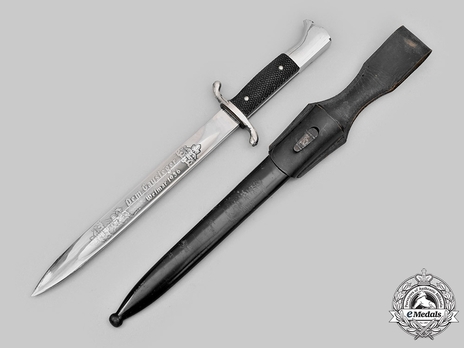
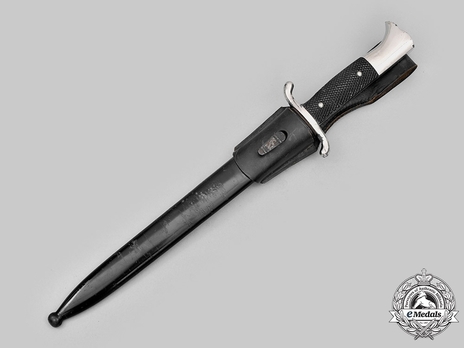
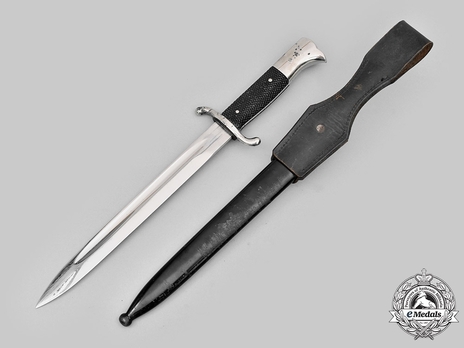
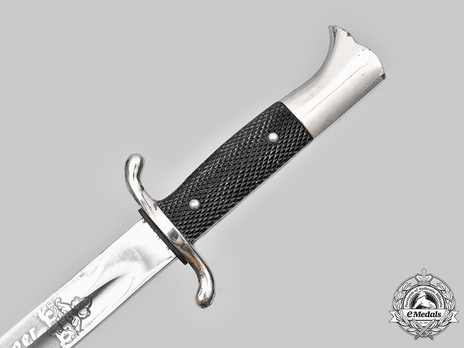
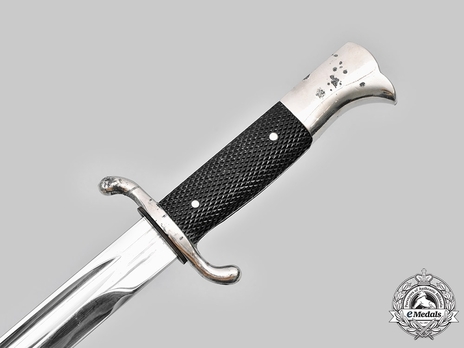
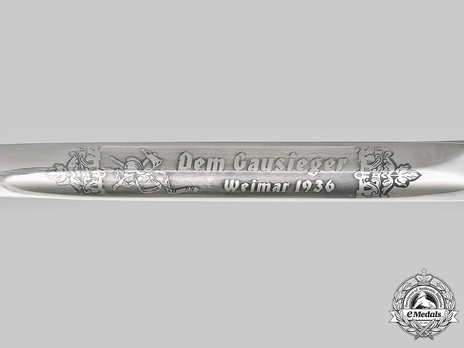
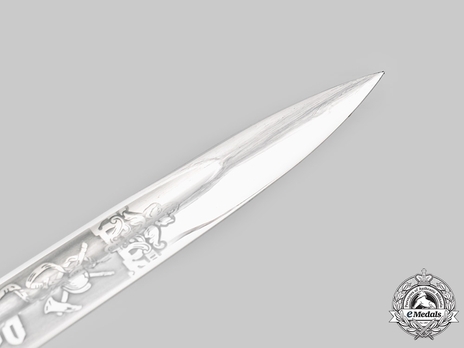
Estimated market value:
A very well-preserved Feuerschutzpolizei commemorative dress bayonet, measuring 410 mm in total length when inserted into the scabbard. It features a 250 mm-long polished magnetic metal blade with a sharpened tip and unspoiled edges, and with fullers running down the length of each side. The obverse of the blade bears a finely-detailed acid-etched inscription of “DEM GAUSIEGER, WEIMAR 1936” (“TO THE REGIONAL VICTOR, WEIMAR 1936”), flanked on the left by Feuerschutzpolizei imagery in the form of a fireman’s helmet on top of an axe and sword. It sits securely within a one-piece nickel-plated zink alloy hilt, which features a hooked crossguard. An intact black leather buffer pad covers the seam where the blade and crossguard meet. Two pieces of pebbled black bakelite comprise the handle grip, and are secured together with dual non-ferrous metal rivets. As a decorative piece, the bayonet does not feature an insertion slot. It is accompanied by its period original scabbard, constructed of a black-painted metal shaft. A downward-pointing hook emanates from the side of the shaft and connects to a period original black leather frog, stitched into a loop for belt attachment. The scabbard retains a functional spring catch, securely holding the bayonet in place during storage, and is held together with a single side rivet. Minor issues consistent with age and use are evident, and include some running marks to the blade, as well as oxidation and loss of finish to the metal elements. This unique commemorative Feuerschutzpolizei dress bayonet is in an overall near extremely fine condition.
During the Third Reich, an effort was made to unite all of Germany’s disparate provincial police forces and agencies into a single cohesive national unit. To attain this goal, Reichsführer-SS Heinrich Himmler was named Chief of the German Police in the Ministry of the Interior in June 1936. That same month, Himmler implemented new standardized uniforms, headgear, and insignia. The uniforms worn prior to Himmler’s appointment were often navy blue, particularly in what had been Prussia. The new uniforms were green, in a shade that was then dubbed “Police green”.
The German Police were divided into two main units, the Ordnungspolizei (Orps or Regular Police) and the Sicherheitspolizei (Secret Police); the Ordnungspolizei were unofficially called the green police (Grüne Polizei) as a result of their uniform colour. The Sicherheitspolizei were made up of two main organizations, the Gestapo and the Kriminalpolizei (Criminal Investigation Police). At the beginning of the Second World War, the Sicherheitspolizei were brought under the auspices of the Reich Main Security Office.
The Fire Protection Police Dress Bayonets were meant to be worn as part of the evening dress uniform worn during parades and special events/occasions. They were not produced with the ability to attach to a rifle.
The handle of the bayonet is made up of the pommel, the grip, and the crossguard. These elements were either composed of nickel-plated white metal or nickel-plated steel. The pommel has the form of a blunted beak. The grips are composed of black-checkered plastic and attached via two rivets. The crossguard on these bayonets features two extending “S” shaped arms/quillons.
The blade is composed of nickel-plated steel. There are two main versions of the bayonet, the bayonets for Officers (from the rank of Obertruppführer and up), and the bayonets for Non-Commissioned Officers (NCOs) (from the rank of Truppführer and down). The Officer Bayonets have a blade that measures approximately 200mm, while the NCO Bayonets have a blade that measures approximately 250mm. The obverse and reverse of the blade ricasso generally feature manufacturer marks. For an additional charge, a sawback could be added to the blade. There are also examples of these bayonets with an etched inscription on the blade that were given to retired Fire Protection Police members.
The scabbard is composed of steel with a frog stud on the obverse, and it is covered in black enamel paint.
The frog is composed of black leather and it attached to the wearer’s belt.
When present, the manufacturer name and location are generally acid etched onto the reverse ricasso, and the manufacturer’s trademark may also be featured on the obverse ricasso.
The issuing number was only included on the bayonet when it was produced by the Fire Protection Department. When the number is present, it tends to be featured on the ricasso or the crossguard reverse. The bayonets issued by private manufacturers do not have this mark.
Property marks are also rarely seen on these bayonets. When they are present, the marks are associated with a specific district. One known example is the mark for the Berlin Feuerwehr “F.W. BERLIN”.
The silver, red, and black portapee/sword knot was permitted for wear with the Police Dress and Service Bayonets.

Comments
Sign in to comment and reply.
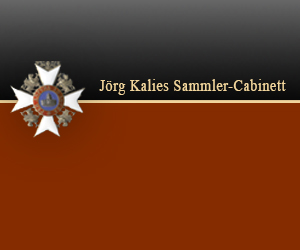
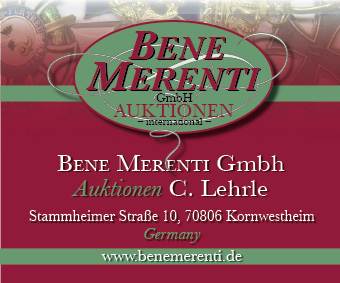
Scroll Top